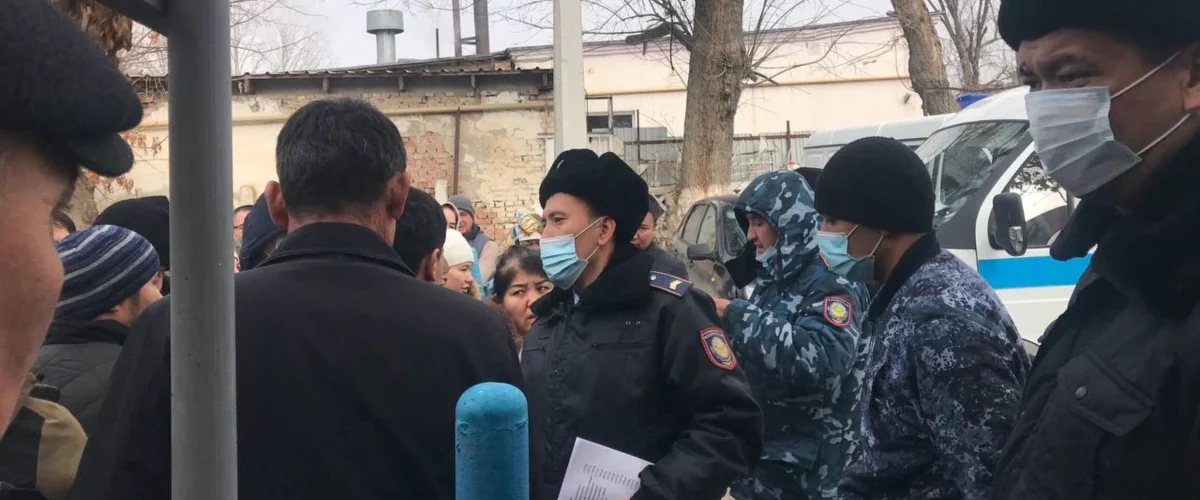Amnesty International has demanded Kazakhstan’s authorities immediately release journalists and activists arrested during and after unprecedented protests across the country last week that led to deadly violence in the commercial capital, Almaty.
In a January 12 statement, Amnesty said that individuals who did not commit internationally recognized crimes but were arrested arbitrarily and for violating Kazakhstan’s controversial law on public gathering must be also released immediately.
Kazakh officials have said that almost 10,000 people were arrested across the country after protests over a sharp hike in the price of liquefied petroleum gas (LPG) in the remote western region of Manghystau spread all the way to Almaty.
Amnesty also called on Kazakh authorities to conduct thorough and unbiased investigations into all reported human rights violations during the protests, including cases where police are accused of using deadly weapons against peaceful demonstrators.
The exact number of protesters killed during the unrests remains unknown, although Kazakh authorities have said that at least 18 law enforcement officers were killed.
A Telegram-channel affiliated with the Kazakh government said on January 10 that 164 civilians died during the unrest, but the Health Ministry said later that the figure was not true and was mistakenly published due to a technical malfunction.
“The silence of authorities regarding the exact number of victims from the unrest and the circumstances of their deaths is outrageous. The information about victims among the civilian population must be revealed immediately,” Marie Struthers, Amnesty International’s director for Eastern Europe and Central Asia, said.
During the protests, Kazakh authorities switched off the Internet and restricted mobile-phone operations for five days.
Kazakh President Qasym-Zhomart Toqaev blamed rights activists and independent journalists for “inciting” the protests, which led to the arrest of several reporters in different towns and cities across the country. Some reporters are still said to be missing.
“Authorities must restore unlimited access to the Internet, unblock all other forms of communication, and stop repressing those who collect and share information. During a crisis, independent information has a decisive impact,” Struthers said.
Officials in Kazakhstan said earlier this week that order has been restored in most of Kazakhstan.
Toqaev requested help from the Russian-led Collective Security Treaty Organization (CSTO) as the protests spread on January 5.
The CSTO quickly sent more than 2,000 troops to Kazakhstan, mainly Russian soldiers, but also small contingencies from CSTO member states Belarus, Tajikistan, Kyrgyzstan, and Armenia.
On January 13, CSTO troops began withdrawing from Kazakhstan in a process authorities have said will last 10 days.


















